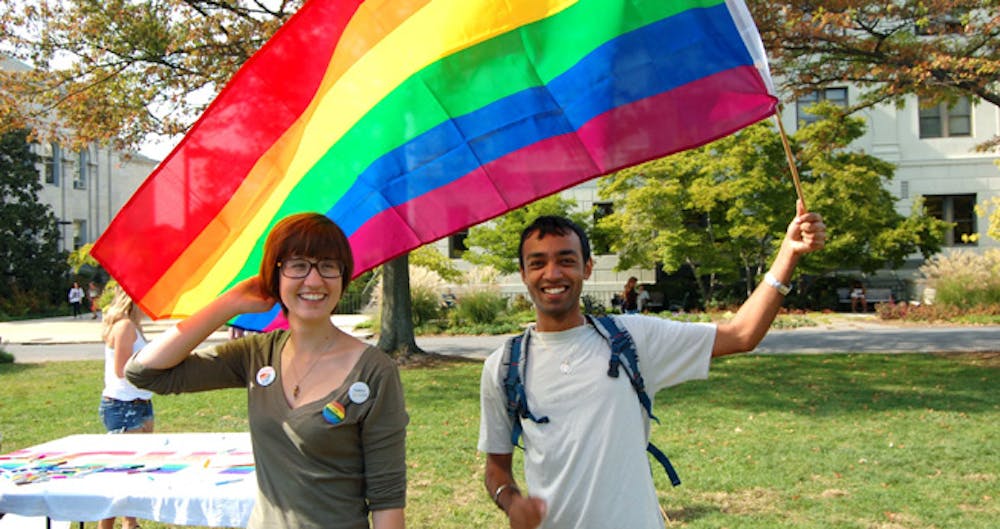President Donald Trump's administration issued a Department of Health and Human Services ruling on June 12 that will roll back antidiscrimination health protections for transgender people.
The decision was a reversal of a section of the Affordable Care Act issued in 2010, which made it illegal for doctors and hospitals to deny care to someone whose identity they disapproved of. In particular, this was crucial in the protection of transgender people, who often face discrimination in health care.
In addition to basic medical necessities, some trans people depend on the healthcare system to receive hormone therapy in order to transition. Max Miller-Edwards, who identifies as genderqueer and is the executive director of AU Pride, said they were fearful of the possible effects of the rollback.
“This rollback has the ability to potentially impact the entire community,” they said. “The LGBTQ+ community already has difficulty accessing healthcare, so this is a very dangerous rollback.”
The ruling may impact college-age transgender people disproportionately. Young people appear to be more likely to openly identify as transgender and gender non-binary, according to a 2019 article published by the journal Translational Andrology and Urology.
“College is when a lot of trans people come out and start living authentically as themselves,” Miller-Edwards said. “This [rollback] validates and opens the door for more discrimination to occur.”
Björkstén, the social media chair of AU’s student LGBTQ+ publication Visible, agrees with this.
“The people who are at the highest risk right now are people who need immediate access to healthcare for any reason, [such as] poor folks and folks who are just now beginning their transition,” Björkstén, who is non-binary, said. “I definitely think college-age people fit into those two categories.”
The ruling is a direct attack on the trans community, they said.
“Trans people already feel like we’re others in society at large and at AU.” Björkstén said. “AU does a pretty good job, but something just as small as having to search multiple floors to find a bathroom that isn’t gendered just makes you feel out of place.”
The timing of the ruling has also fallen under heavy criticism. It was issued on the fourth anniversary of the massacre at Pulse, a gay nightclub in Orlando.
Roger Severino, the Office for Civil Rights director at the Department of Health and Human Services told The New York Times that the timing was “purely coincidental.”
It also came in the midst of the coronavirus pandemic, which has created a public health crisis.
At AU, hormone therapy is available at the Student Health Center. Dr. David Reitman, the director of LGBT Health Services at AU, detailed the process of receiving hormone therapy.
“Any student who wants to get hormones for gender-affirming care, we offer it to them,” he said.
The health center uses the Informed Consent Model, which outlines that trans and gender-nonconfirming patients can seek care without needing verification from a mental health professional.
“A student says that they are experiencing gender dysphoria and they want to transition to some degree, and we don’t require them to see a therapist,” Reitman said. “We basically take their word, and if they want to start hormones, we’ll provide them for them.”
Dr. Reitman said that there are protections in place that will prevent the attack on trans healthcare, at least at the University. CareFirst BlueCross BlueShield, the insurance that is provided to students through the University, will not be affected.
“For the most part, [the rollback] probably will not affect them [AU students] that much. We’re not changing our practices by any means. We’re not gonna treat our transgender students differently because of this ruling, and we’re gonna continue to prescribe hormones for students who want them.”
However, Reitman said students may encounter a problem receiving healthcare if they are on their parents’ insurance, which has the power “to decide that they are not gonna cover gender dysphoria and a diagnosis or hormone therapy.”
Outside of the University, people seeking healthcare in D.C. are also protected from the rollback. As dictated by the D.C. Human Rights Act, discrimination is illegal based on the 21 protective traits that apply to those who seek healthcare in the District.
Although Reitman agrees that college-age trans people will disproportionately be impacted, big health insurance companies like BlueCross BlueShield, Aetna and UnitedHealth Group “don’t have policies against transgender healthcare,” Reitman said.
However, this ruling might make transgender people “less inclined to get healthcare,” Reitman said.
“It’s just so dehumanizing,” Björkstén said about the rollback. “It makes it more emotionally traumatizing for trans people to seek help.”





